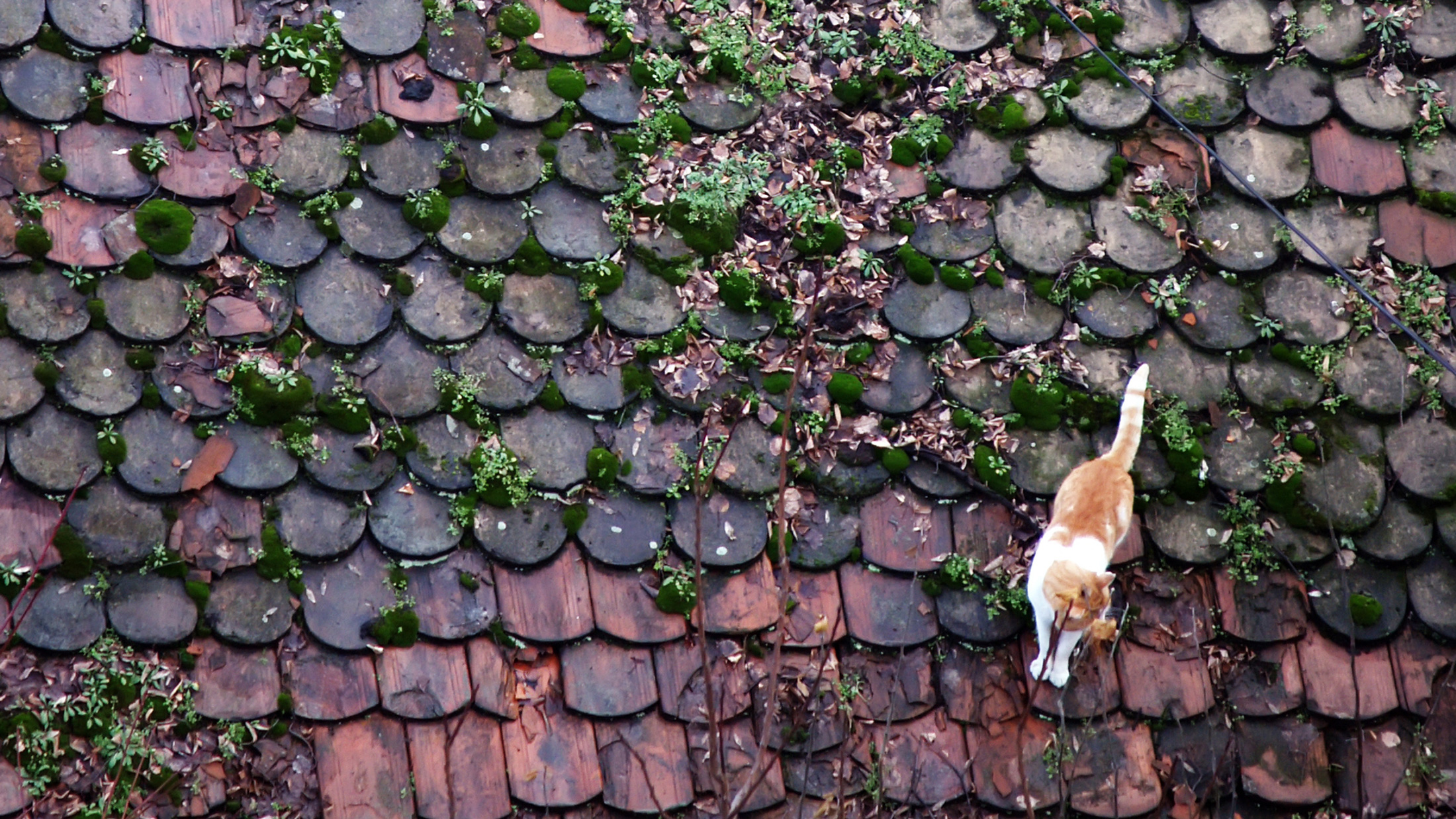Send your question to Umbra!
Q. There is lots of moss growing on our concrete tile roof. Do you have any advice on getting rid of it? Looking online, I see several recommendations for a product that uses hydrogen peroxide, which it says is eco-friendly. Do you agree? Our drinking water comes off the roof and is collected into a cistern. Thank you for your help.
Kristin M.
Gabriola, B.C.
A. Dearest Kristin,
I just had to Google your hometown, and I see you live in what looks like a seaside paradise off Vancouver Island. But even the planet’s prettiest hometowns have their downsides, and it seems the price you pay for your temperate winters and romantically foggy atmosphere is moss that grows like it’s on steroids. We generally love green roofs here at Grist, but this kind could spring a leak in your attic.
Your question reminds me of our recent discussion on mold removal, and just like in that case, I think the best chemical to start with is good old elbow grease, applied liberally. Moss doesn’t have true roots, so a proper brushing with a wet broom is often all that’s needed to clear it from your eaves. If the moss has grown especially thick, you might need to upgrade to a scraper or heavy wire brush. And not that this is of much use now, but it helps to go on the offensive in summer, when moss is dry.
Oh, and before you grab the broom: I’ve never been on a wet concrete-tile roof (come to think of it, I’ve never been on any roof pitched steeper than 180 degrees), but it sounds slippery. If your home’s topper is remotely dangerous, promise me you’ll get professional help with this, OK?
If the green stuff has reached biblical proportions, it’s possible your vigorous brushing won’t quite do the job. First, what not to do: Don’t employ a pressure washer, as this can damage shingles. Don’t use any moss-killing product containing zinc sulfate, which is an eye irritant and toxic to aquatic life (and nothing that you want in your household drinking water). And don’t sprinkle laundry detergent on the moss, as that can also damage some types of shingles. (If you really want to sprinkle something, I found one person who found success with baking soda.)
As for hydrogen peroxide: Generally, yes, it is eco-friendly. According to the EPA, it breaks down rapidly into nothing but oxygen and water, leaving zero residue on your roof or in the soil. Milder concentrations are even approved for use on crops. But I’m not suggesting that you go right to it for two reasons, Kristin. One, hydrogen peroxide is a powerful oxidizer and could kill the moss, but you’ll still need to sweep it off your roof. Why do two steps when one would do? Two, hydrogen peroxide can be nasty stuff to deal with during application. Even the household-strength versions (about 3 percent) will irritate your lungs, eyes, and skin. And anything stronger is very corrosive to all of the above; plus, if you for some reason drank the concentrated variety, it could burn your internal tissues. I’m not sure what concentration the moss-killers you’ve found come in, but I’d be wary of anything much more than what you’d find in your medicine cabinet.
Once you’ve got the moss monster under control, some simple preventative steps will make this easier for the long haul. Moss needs moisture to grow, so keep your roof drier by sweeping or blowing water-holding debris (like needles and branches) away regularly – twice a year should do it. You’ll also want to trim any overhanging branches that provide too much shade in problem areas, which also harbor moisture.
Oh, and by the way, cheers to you for harvesting your rainwater. This practice saves water, helps with stormwater management, reduces erosion and runoff issues, and saves energy in treating and transporting water. But I trust you’re taking proper precautions and filtering or otherwise treating your rainwater before sipping, right? As you probably already know, runoff may contain everything from heavy metals to particulates from vehicle exhaust to pesticides to pathogens to bird poop. Hydrogen peroxide sounds positively delicious in comparison.
Bryophytically,
Umbra



